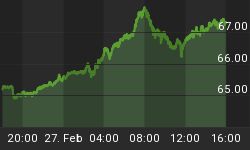
• Reid Bryson has been considered as "the father of scientific climatology". He passed away in 2008, aged 88, and one of his observations was: "If you want to be an eminent scientist you have to have grad students and a lot of grants. You can't get grants unless you say, 'Oh, global warming, yes, yes, carbon dioxide.'"
• "Phil Jones is the Director of the CRU and the man at the heart of Climategate. According to one of the documents from his center, between 2000 and 2006 Mr. Jones was the recipient (or co-recipient) of some $19 Million worth of research grants."
– Wall Street Journal, December 2, 2009
• In an equivalent period of intellectual hysteria during the rampant inflation in the early 1800s, Goethe dryly observed: "Most men only care for science so far as they get a living by it, but they will worship error when it affords them a subsistence."















